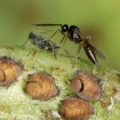- Preliminary data from Arm A1 of the Phase 2 EDGE-Gastric study showed promising ORR and six-month PFS results, irrespective of PD-L1 expression
- Domvanalimab is the only Fc-silent anti-TIGIT antibody in Phase 3 for upper GI adenocarcinomas and has the potential to be first to market for these cancers
FOSTER CITY, Calif., & HAYWARD, Calif.–(BUSINESS WIRE) November 06, 2023 — Gilead Sciences, Inc. (Nasdaq: GILD) and Arcus Biosciences, Inc. (NYSE: RCUS) today announced that domvanalimab plus zimberelimab and chemotherapy showed encouraging overall response rate (ORR) and six-month progression-free survival (PFS) rate results in a preliminary analysis from Arm A1 of the EDGE-Gastric study. This ongoing Phase 2, multi-arm, global study is evaluating the safety and efficacy of various combinations of the Fc-silent anti-TIGIT antibody domvanalimab plus the anti-PD-1 antibody zimberelimab and chemotherapy in patients with locally advanced unresectable or metastatic gastric, gastroesophageal junction or esophageal adenocarcinoma. These results will be presented tomorrow during the American Society of Clinical Oncology (ASCO) Monthly Plenary Series,a virtual forum for presentation and discussion of the latest cancer research.
“The preliminary data from the EDGE-Gastric study underscore the potential role of dual anti-TIGIT and anti-PD-1-containing regimen in the treatment of gastroesophageal cancer where front-line chemotherapy with anti-PD-1 blockade is currently the standard,” said Yelena Y. Janjigian, M.D., Chief Attending Physician of the Gastrointestinal Medical Oncology Service, Memorial Sloan Kettering Cancer Center, and a principal investigator for the EDGE-Gastric study. “These early data are encouraging and indicate the potential for the anti-TIGIT, domvanalimab-based therapy to improve upon anti-PD-1 and chemotherapy in this setting, with a similar safety profile to anti-PD-1 and chemotherapy.”
At data cutoff (September 4, 2023), 41 patients were enrolled and treated with a median follow-up of 8.1 months; 24 patients (59%) remained on study treatment at time of data cutoff. Median time on treatment was 33 weeks (range: <1 to 53 weeks).
The domvanalimab-containing regimen showed an ORR of 80% in patients with PD-L1-high tumors (tumor activity positivity (TAP) ≥5%), 46% in patients with PD-L1-low tumors (TAP <5%) and 59% for patients overall. There were two confirmed complete responses. Six-month landmark PFS rate was 93% for patients with PD-L1-high tumors (TAP ≥5%), 68% for patients with PD-L1-low tumors (TAP <5%) and 77% for patients overall. Median PFS was not reached and mature PFS data are expected in the second half of next year.
The efficacy results including ORR and six-month PFS rates are summarized in the table below:
|
|
PD-L1-high*
(TAP ≥5%)
N=15
n (%)
|
PD-L1-low*
N=24
n (%)
|
Overall
N=41
n (%)
|
|
ORR (95% CI)
|
80%
(52,96)
|
46%
(26,67)
|
59%
(42,74)
|
|
Confirmed ORR (95% CI)
|
73%
(45,92)
|
46%
(26,67)
|
56%
(40,72)
|
|
6-month PFS Rate (95% CI)
|
93%
(81,100)
|
68%
(48,88)
|
77%
(64,90)
|
|
*Tumor samples from 2 patients were not available for central PD-L1 testing
|
|||
|
CI: confidence interval
|
|||
The domvanalimab-containing regimen was well tolerated, with a similar safety profile to what has been reported for anti-PD-1 plus chemotherapy in this setting. The most common adverse events (AEs) were neutropenia (59%), nausea (54%), anemia (27%) and fatigue (27%). Infusion-related reactions were observed in 20% and the majority (17%) were related to chemotherapy. No patients experienced serious immune-mediated AEs, and there were no treatment-emergent adverse events (TEAEs) resulting in death.
These data add to the growing body of evidence that domvanalimab, an Fc-silent anti-TIGIT antibody, has a differentiated safety and tolerability profile relative to published data from studies with Fc-enabled anti-TIGIT antibodies.
The preliminary data from Arm A1 of the Phase 2 EDGE-Gastric study support the ongoing Phase 3 study, STAR-221, in unresectable or metastatic upper GI cancers. The companies have three additional ongoing Phase 3 registrational studies of domvanalimab-containing regimens in lung cancer, including STAR-121, ARC-10 and PACIFIC-8.
Domvanalimab and zimberelimab are investigational molecules. Neither Gilead nor Arcus has received approval from any regulatory authority for any use globally, and their safety and efficacy for the treatment of gastrointestinal and lung cancers have not been established.
About the EDGE-Gastric Study
The ongoing, multi-arm, global EDGE-Gastric trial (NCT05329766) is evaluating the safety and efficacy of various combinations of the Fc-silent anti-TIGIT antibody domvanalimab and the anti-PD-1 antibody zimberelimab in patients with locally advanced unresectable or metastatic gastric (G), gastroesophageal junction (GEJ) or esophageal (E) adenocarcinoma. Patients in Arm A1, with previously untreated G/GEJ/E adenocarcinoma, received 1600 mg of domvanalimab intravenously (IV) every four weeks (Q4w) plus 480 mg of zimberelimab IV Q4W + FOLFOX (oxaliplatin 85 mg/m2 IV, leucovorin 400 mg/m2 IV, fluorouracil 400 mg/m2 IV bolus + 2400 mg/m2 continuous 46-48-hour IV infusion) every two weeks.
About Domvanalimab
Domvanalimab is the first Fc-silent investigational monoclonal antibody in pivotal trials that is designed to block and bind to the T-cell immunoreceptor with Ig and ITIM domains (TIGIT), a protein receptor on immune cells that acts as a brake on the immune response. Cancer cells can exploit TIGIT to avoid detection by the immune system. By binding to TIGIT, domvanalimab is expected to free up immune activating pathways and activate immune cells to attack and kill cancer cells. Domvanalimab has demonstrated complete receptor coverage on all TIGIT-expressing peripheral leukocytes.
Domvanalimab is being evaluated in four registrational Phase 3 studies across lung and gastrointestinal cancers, including: (1) ARC-10, evaluating domvanalimab plus zimberelimab versus pembrolizumab in first-line locally advanced or metastatic PD-L1 ≥50% NSCLC; (2) PACIFIC-8, being operationalized by AstraZeneca, evaluating domvanalimab plus durvalumab in unresectable Stage 3 NSCLC; (3) STAR-121, evaluating domvanalimab plus zimberelimab and chemotherapy versus pembrolizumab plus chemotherapy in first-line PD-L1-unselected NSCLC; and (4) STAR-221, evaluating domvanalimab plus zimberelimab and chemotherapy versus nivolumab plus chemotherapy in first-line locally advanced, unresectable or metastatic gastric, esophageal and gastro-esophageal junction adenocarcinomas.
About Arcus Biosciences
Arcus Biosciences is a clinical-stage, global biopharmaceutical company developing differentiated molecules and combination medicines for people with cancer. In partnership with industry partners, patients and physicians around the world, Arcus is expediting the development of first- or best-in-class medicines against well-characterized biological targets and pathways and studying novel, biology-driven combinations that have the potential to help people with cancer live longer. Founded in 2015, the company has expedited the development of multiple investigational medicines into clinical studies, including new combination approaches that target TIGIT, PD-1, the adenosine axis (CD73 and dual A2a/A2b receptor) and HIF-2a. For more information about Arcus Biosciences’ clinical and pre-clinical programs, please visit www.arcusbio.com.
About Gilead Sciences
Gilead Sciences, Inc. is a biopharmaceutical company that has pursued and achieved breakthroughs in medicine for more than three decades, with the goal of creating a healthier world for all people. The company is committed to advancing innovative medicines to prevent and treat life-threatening diseases, including HIV, viral hepatitis, COVID-19, and cancer. Gilead operates in more than 35 countries worldwide, with headquarters in Foster City, California.
Arcus Forward-Looking Statements
This press release contains forward-looking statements. All statements regarding events or results to occur in the future contained herein are forward-looking statements reflecting the current beliefs and expectations of management made pursuant to the safe harbor provisions of the Private Securities Litigation Reform Act of 1995, including, but not limited to, the statements in Dr. Janjiagan’s quote and statements regarding: the safety and tolerability of domvanalimab, projected timing of future results and whether data and results from current studies support further development of a program. All forward-looking statements involve known and unknown risks and uncertainties and other important factors that may cause our actual results, performance or achievements to differ significantly from those expressed or implied by the forward-looking statements. Factors that could cause or contribute to such differences include, but are not limited to: dependence on the collaboration with Gilead for the successful development and commercialization of Arcus’s investigational products, including domvanalimab and zimberelimab; difficulties associated with the management of the collaboration activities or expanded clinical programs; risks associated with preliminary and interim data not being guarantees that future data will be similar; the inherent uncertainty associated with pharmaceutical product development and clinical trials; delays in Arcus’s clinical trials due to difficulties or delays in the regulatory process, enrolling subjects or manufacturing or supplying product for such clinical trials; and changes in the competitive landscape for Arcus’s programs. Risks and uncertainties facing Arcus are described more fully in the “Risk Factors” section of Arcus’s most recent Quarterly Report on Form 10-Q filed with the U.S. Securities and Exchange Commission. You are cautioned not to place undue reliance on the forward-looking statements, which speak only as of the date of this press release. Arcus disclaims any obligation or undertaking to update, supplement or revise any forward-looking statements contained in this press release.
Gilead Forward-Looking Statements
This press release includes forward-looking statements within the meaning of the Private Securities Litigation Reform Act of 1995 that are subject to risks, uncertainties and other factors, including Gilead’s ability to initiate, progress or complete clinical trials within currently anticipated timelines or at all, and the possibility of unfavorable results from ongoing or additional clinical trials, including those involving domvanalimab and/or zimberelimab; uncertainties relating to regulatory applications for these and other candidates and related filing and approval timelines; Gilead’s ability to receive regulatory approvals for such indications in a timely manner or at all, and the risk that any such approvals may be subject to significant limitations on use; the possibility that Gilead may make a strategic decision to discontinue development of these programs and as a result, domvanalimab and/or zimberelimab may never be commercialized; the risk that Gilead may not realize the potential benefits of its collaboration with Arcus or its other investments in oncology; difficulties or unanticipated expenses in connection with the collaboration and the potential effects on Gilead’s revenues and earnings; and any assumptions underlying any of the foregoing. These and other risks, uncertainties and other factors are described in detail in Gilead’s Quarterly Report on Form 10-Q for the quarter ended June 30, 2023, as filed with the U.S. Securities and Exchange Commission. These risks, uncertainties and other factors could cause actual results to differ materially from those referred to in the forward-looking statements. All statements other than statements of historical fact are statements that could be deemed forward-looking statements. The reader is cautioned that any such forward-looking statements are not guarantees of future performance and involve risks and uncertainties, and is cautioned not to place undue reliance on these forward-looking statements. All forward-looking statements are based on information currently available to Gilead, and Gilead assumes no obligation and disclaims any intent to update any such forward-looking statements.
###
Dr. Janjigian provides consulting services to Arcus Biosciences.
The Arcus name and logo are trademarks of Arcus Biosciences, Inc., and Gilead and the Gilead logo are trademarks of Gilead Sciences, Inc., or its related companies.
For more information about Gilead, please visit the company’s website at www.gilead.com , follow Gilead on X (@GileadSciences) or call Gilead Public Affairs at 1-800-GILEAD-5 or 1-650-574-3000.
Source: Gilead Sciences, Inc.
Posted: November 2023
More news resources
Subscribe to our newsletter
Whatever your topic of interest, subscribe to our newsletters to get the best of Drugs.com in your inbox.











No Comments
Leave a comment Cancel